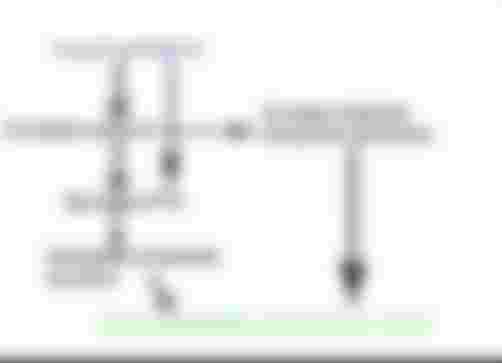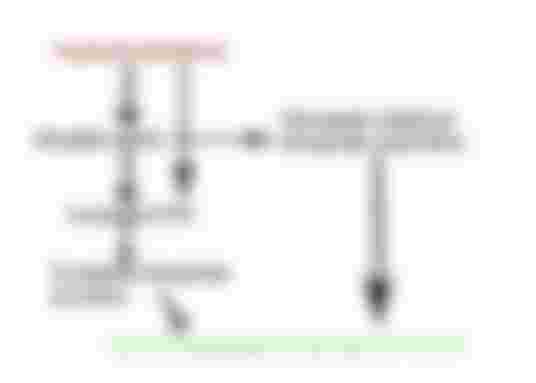Hello readcashers, are you ready to learn about an important electrolyte in our body named phosphate?
So lets start our journey...
Today, I was talking with one of my nerd friend and that was a great mistake for me. Nothing bro, just I said what if there is no phosphate in our body??
Okay, my friend started....
What do you think from where you get your energy which you use for daily household work purposes??
Oh! Dear friend please dont start your lecture here..
No, no am not starting.. please answer.
Okay
--Adenosine tri *(phosphate)*
--Nicotinamide adenine di nucleotide *(phosphate)*
-- Can you mention two importamt component of your bones? ?
Calcium and *(phosphate)*
[ 85% of phosphates are in bone and they combine with calcium to form hydroxyapetite which make bones hard, 1% in ECF and 14 % intrecellular.]
--what about your teeth? Isnt there phosphate ?
-yeah, of course
- so let me tell you about some very very important functions of phosphate in our body...
*Functions of phosphate*
1. Bone mineralization
2. Participate in energy metabolism( storage and transfer of energy as ATP)
3. Act as buffer and facilitate urinary excretion.
4. Act as the component of intracellular second messenger and participate in signal transduction.
5. Facilitate respiratory chain activity.
6. Component of phospholipid, nucleotide and nucleic acid.
7. Component of 2, 3-BPG and regulate oxygen transport.
8. Helps in regulation of enzyme activity by covalent modification of enzyme.
- bro!! Please stop! I cant remember more functions
--okay, then i gonna explain the regulatory mechanism of it. Do you have patience to stay with mem
-Wait! You didnt said about normal range of phosphate. What I will regulate here ?
--okay, am saying ..
◇Normal range of phosphate:
--listen, phosphates are present in the kids body 4-7 mg/dl
-- phosphates are present in the adults body 2.5- 4.5mg/dL
Now, say if phosphate increases then what should I do??
-- uhh, you have nothing to do. All the functions will be carried by calcitriol and parathyroid hormone.
You just see
FIG-1

( regulation of phosphate concentration in case of hypophosphayemia )
&

(FIG-2 regulation of phosphate concentration in case of hyperphosphayemia )
--Does phosphate concentration increases above 4.5 mg/dL
- yes , we call it hyperphosphatemia
-when it occurs?
-Listen
Causes of hyperphosphatemia
1. Chronic kidney disease
2. Hypothyroidism
3. Pseudohypothyroidism
4. Excessive intake
5. Breakdown of cells because inside cells there are plenty of phosphates
So due to some causes like
a. Crush injuries
b. Tumor lysis syndrome
c. Rhabdomyolysis( Destruction of muscle cells)
Hyperphosphatemia may occur.
What is the problem if Hyperphosphatemia
Occurs ?
If it is mild then no problem but if is severe cases many symptoms are appeared.
Symptoms of severe hyperphosphatemia:
+ Neurons become more excitable.
+ Tingling around mouth.
+ seizures
+ Bone pain
+ Binds with calcium and forms bone like crystals
a. Under the skin
b. Blood vessel walls.
c. Joints
d. Kidney stones
e. Long term hyperphosphatemia >>whole kidney turns to bone ☆( Nephrocalcinosis)☆
--Huh! You converted the whole kidney to a piece of stone ?? What a danger man ?
-Now tell me , does phosphate concentration decreases below normal?? ----Yes we call it Hypophosphatemia
Causes of hypophosphatemia:
1. Excess loss of phosphate
2. Primary hyperparathyroidism
- excess phosphate lost in urine
3. Fanconis syndrome
- (PCT cant reabsorb PO4)
4. Not enough abosorbed in GIT
For alcohol & some medication.
5. Deficiency in Diet
- Malnourished
- Anorexia Nervosa
6. Respiratory Alkalosis
Do you know?
Symptoms of severe hypophosphatemia:
▪Muscle weakness
▪Osteomalacia
▪Muscle breakdown
▪altered mental status
Also
▪ hypercalcemia symptoms
Did you understood abc of phosphates in our body ??
Will you ask again what is the use of phosphate in our body??
This story is hypothetic. I build this story to share knowledge via fun.
Please dont forget to share your opinion and dont left no stone turned unturned to know more about inside your body...
( source: 1. Abc of biochemistry- mozammel sir
Osmosis vedios - youtube)


Thanks for your good information